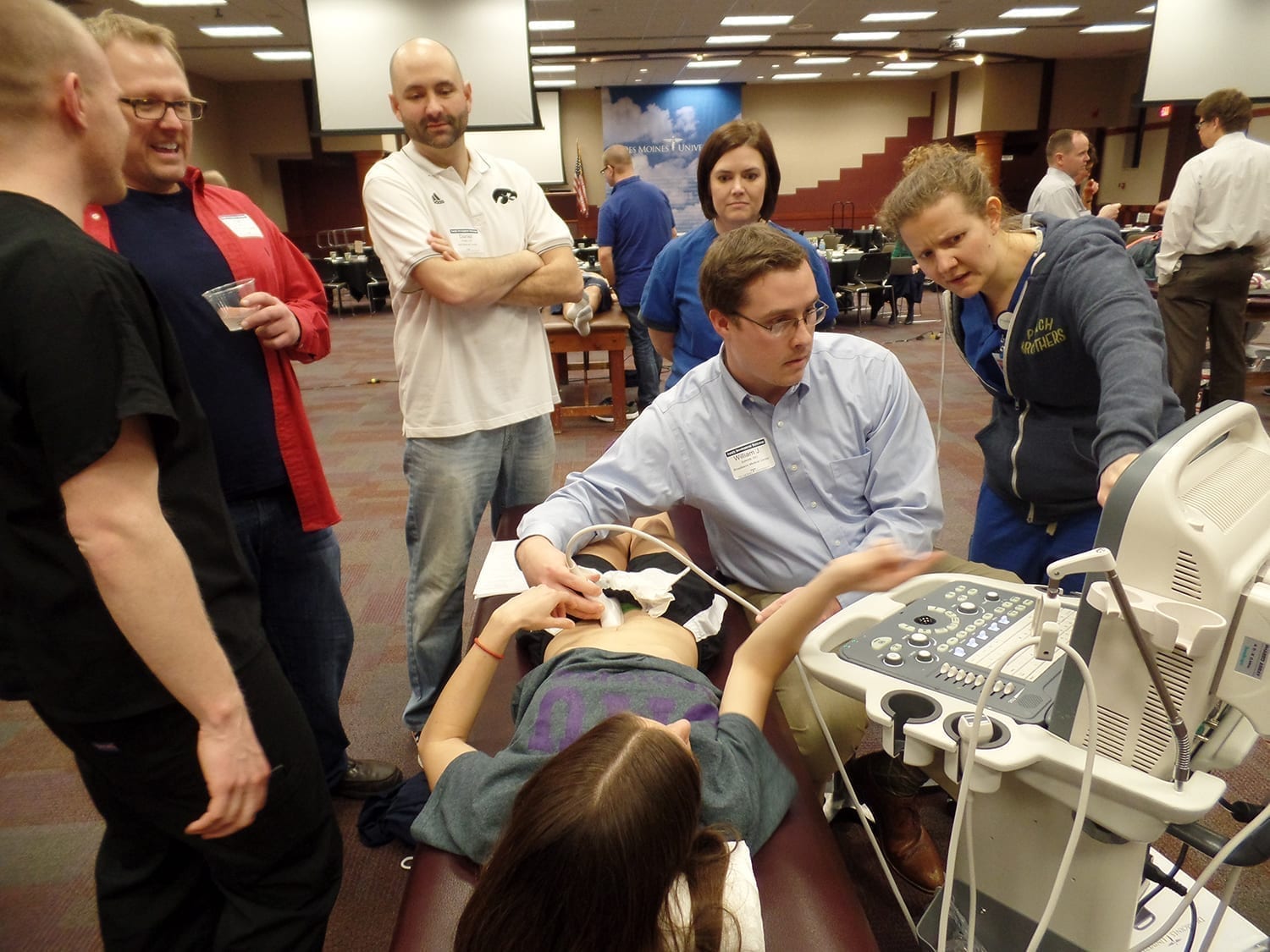About 10 years ago, DMU alumnus and emergency medical physician Tom Benzoni, D.O.’83, EM, AOBEM, FACEP, looked out on the horizon of health care and saw an emerging technology: ultrasound.
“I thought I’d better learn about it. I’ve got to keep up with the kids,” says the assistant professor of family and internal medicine at DMU.

On Oct. 19, the University will offer a workshop on using ultrasound in emergency medicine. It’s designed to give practicing emergency medical providers current information and hands-on training to improve image acquisition and interpretation of point of care ultrasound involving biliary, cardiac and arterial exams. Presenters will include Dr. Benzoni; Chase Deobald, D.O.’13, and Clint Hawthorne, M.D., FACEP, UnityPoint Health Des Moines; Karin Stokke Howe, D.O.’13, MercyOne Des Moines; and Casey Woster, M.D., RDMS, Regions Hospital, St. Paul, MN. The workshop also will include small-group breakout sessions where participants will scan live models, guided by expert facilitators.
The workshop will occur on the Olsen Center on campus, beginning with registration and breakfast at 7:30 a.m. and concluding at 12:15 p.m. A “bonus” ultrasound session will be offered from 12:30 to 1:30 p.m. Continuing medical education (CME) credit is available to participants. Registration and additional information are posted on the DMU CME website.
Ultrasound is a technology that uses high-frequency sound waves to make images of organs and structures in the body, which can give health care providers in-depth insights into their patients’ conditions without using invasive procedures or ionizing radiation, as x-rays and CT scans do. In 2015, the University acquired 20 ultrasound machines to put this vital tool in the hands of students in its osteopathic, podiatric, physician assistant and physical therapy programs. Dr. Benzoni was charged with leading efforts to educate students on using the technology. Later, he and two osteopathic medical students gave an ultrasound demonstration at a conference of the Iowa Osteopathic Medical Association.
“There are physicians with ultrasound machines sitting in their offices that they don’t know how to use,” he says. “But this technology is now considered core to medical practice.”

